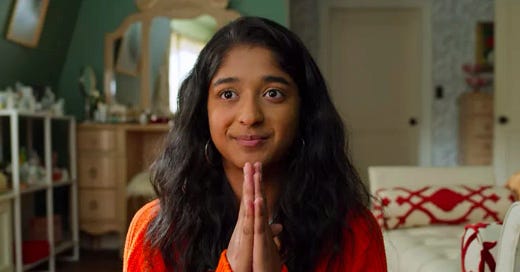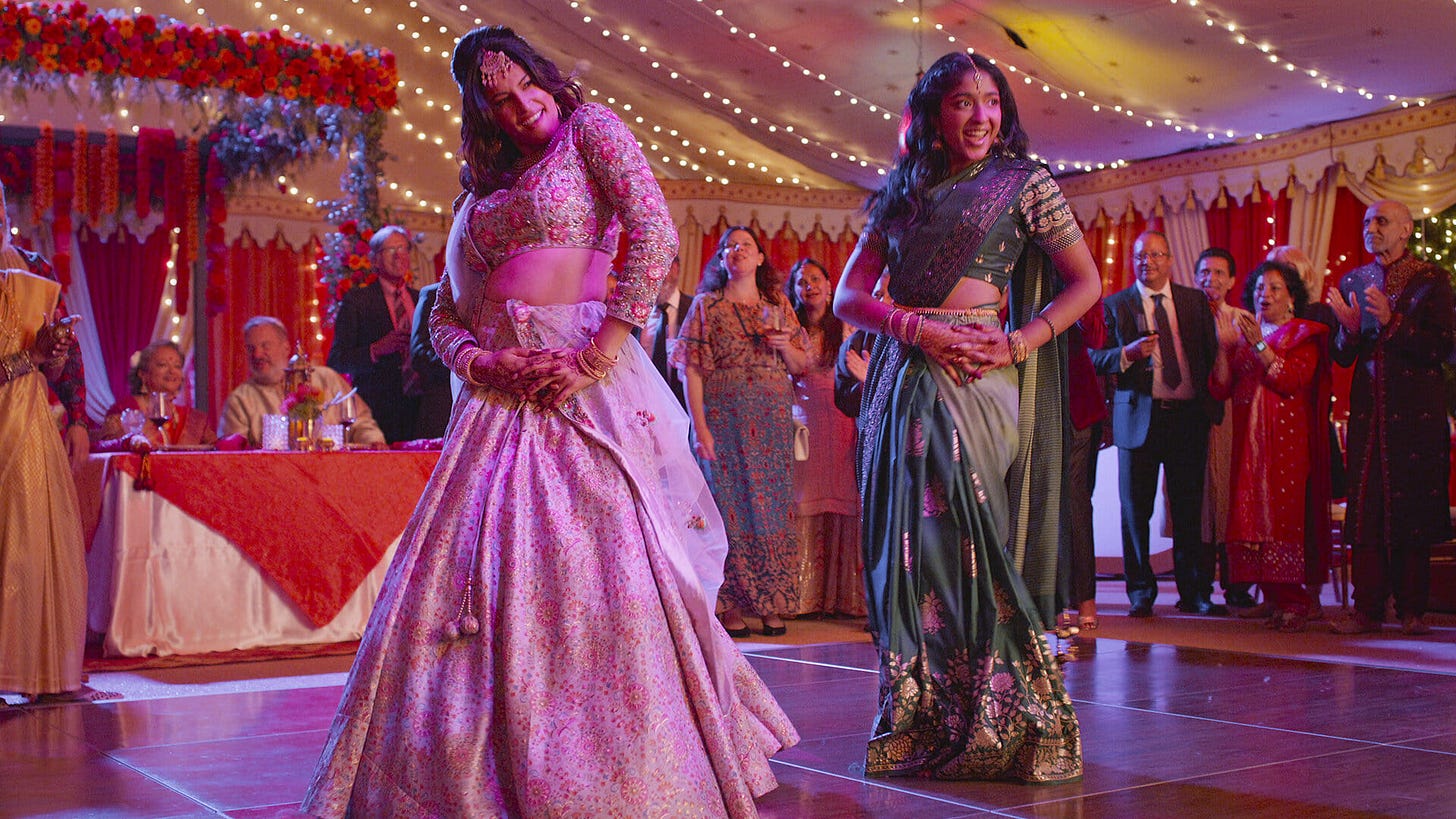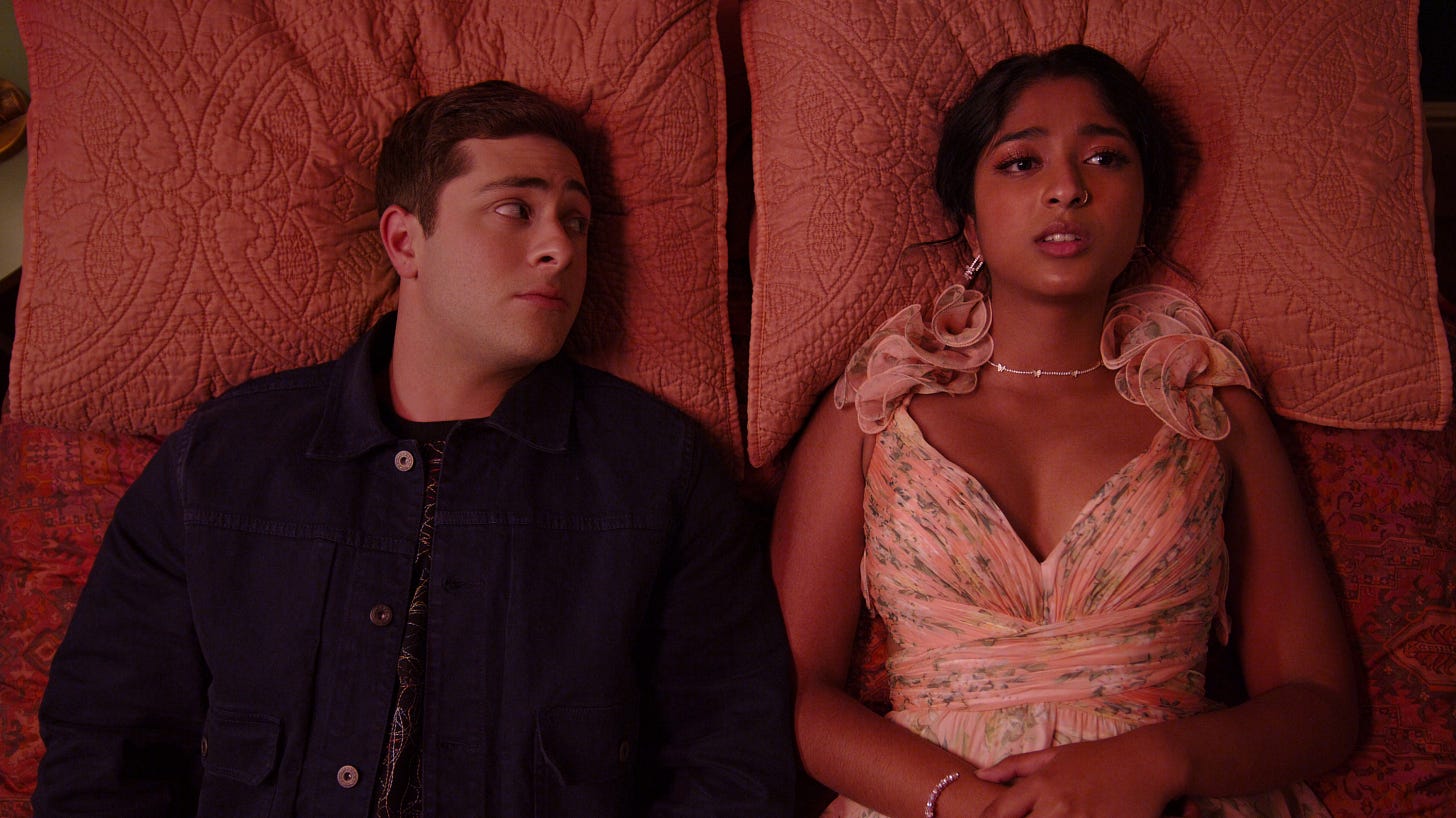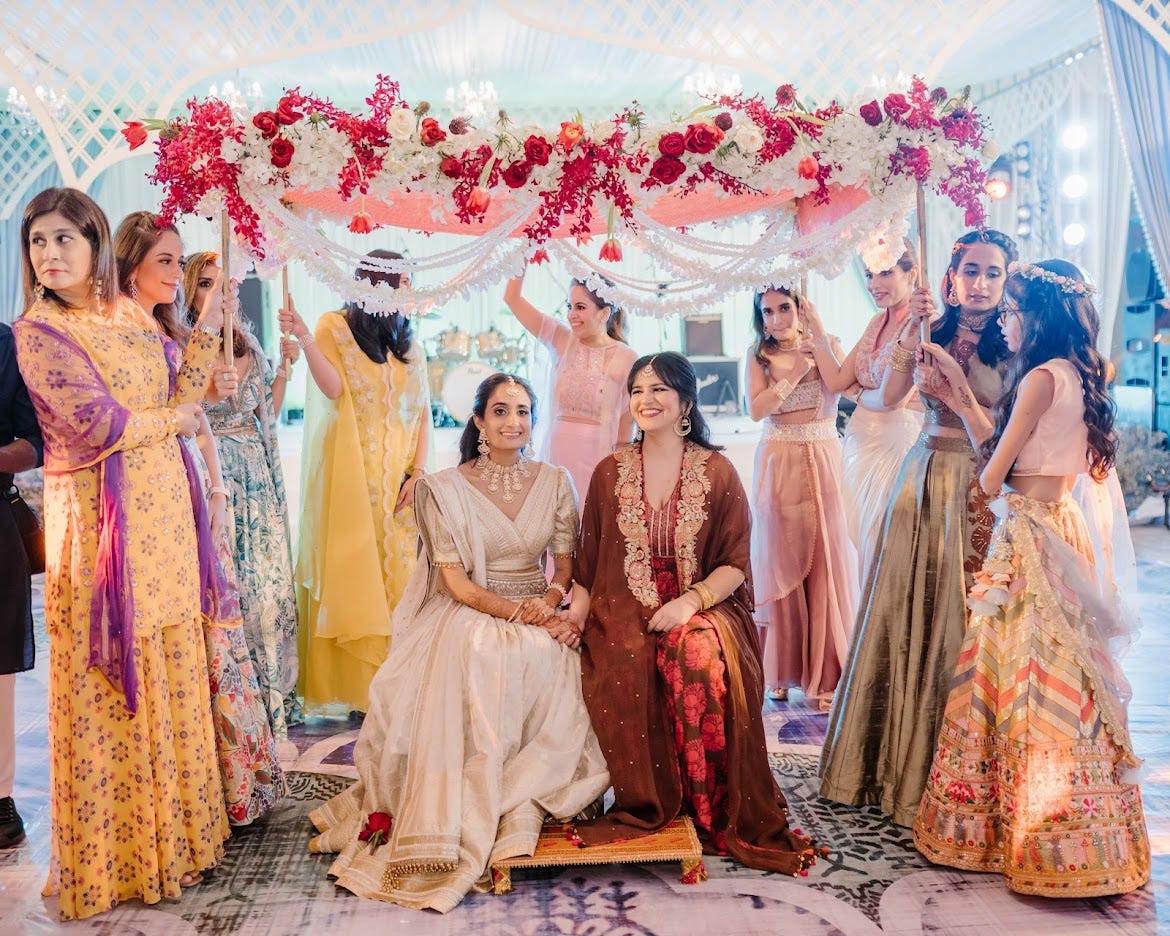Thank you for reading this post! Note: Nothing I write is currently behind a paywall as I’d like to reach as many people as possible. If you are enjoying As Seen On TV, consider upgrading to £4/month, or £46/year. To learn more, click here:
*If you’re already subscribed for free, click on “✓ Subscribed” and then change your subscription plan to a paid one when the “Manage your subscription” page pops up.
“Let me tell you a story,” my grandfather exclaims.
Seated at the head of the table at almost ninety years old, he is much older than us and definitely much wiser. There used to be a rumour in our community that my grandfather had developed the ability to levitate while he was meditating because he was so at peace and enlightened.
In Bangkok on Wednesday evenings, my life is loud. My mother, aunties, uncles, cousins and their spouses gather around the large wooden dining table inside my maternal grandparents’ apartment. We share a mix of Indian and Thai food. My mother and my aunties scream and throw things at each other in good humour, while a cousin or two try to find the weakest link to bully. Envelopes with pocket money are passed around the table even though we all have jobs and some of us are even married with children. My grandparents sit back and smile. Our family is messy, that part is certain, but right now, we are all still alive and together.
On this Wednesday evening in December, we are telling ghost stories. My grandfather speaks of time spent during his youth in Chinatown, where his father set up a textile shop. It was believed everyone who occupied the space would be haunted by spirits. If you lived there long enough, you would fall gravely ill. He says that a God, a Guru, came to his sick father in a dream to warn him: it was best to change his ways and his location before it was too late. His father listened, and so began their rags to riches journey.
“It’s my turn to talk,” my oldest auntie shrieks, getting up from her seat. Our heads turn towards her in unison, the air thick with curiosity. I wonder if she’s finally going to debunk the myth that the cluster of peri-menopausal women in our community were not possessed by evil spirits ten years ago, but in fact, just simply very depressed.
“Years ago, I had a premonition one night,” she continues. “I walked out of my apartment to the elevator. The doors opened. Standing there, miraculously, was a Guru, a God. He looked at me, dead in the eyes, and asked me to go back into the kitchen and make him a pitta with vegan cheese. I hesitated, because they don’t sell vegan cheese in Thailand.”
“Where the fuck is this story going?” I hear my mother mutter under her breath.
“Yes, but in the dream I happened to have vegan cheese so I did what I was told. The next day, I went to the supermarket and lo and behold, for the first time in fifty years, they had a freezer full of vegan cheese stocked to the brim,” she says. “I believe He came into my subconscious to tell me this, that this cheese was going to be a very important part of my life.”
The room erupted with screams and cackles. I laughed so hard I almost vomited. My cousins and I continued laughing about it hours later, cramped together in my brother-in-law’s car on our way to get bubble tea.
I hadn’t laughed like that in years, and that realisation made me emotional, because I will never be able to reconcile these two truths: this community, this family unit of mine, is responsible for hindering my growth as a woman, but it has also created one of the only few spaces where I feel like I culturally belong.1
I’ve been rewatching Never Have I Ever (2020). In light of this recent realisation that I struggle to find belonging, it has made me cry way more than it did back when it first aired during the Covid-19 pandemic. Devi’s growth as a young girl, Indian diaspora, has mirrored so much of my own.
I spent so much of my youth hating my Indian heritage, wanting to be Thai, or better yet, White, at all costs because it would make me feel like I fit in, like I belonged. As a teenager, I moulded myself into someone who hated Indian food, who was embarrassed to wear saris and lehengas to special events, who wouldn’t ever dare date an Indian boy because that would mean I fully accepted who I was: someone who was different than the majority.
In the final episode of Never Have I Ever, Devi and Kamala perform a dance routine at her Pati’s wedding. For Devi, this was a big deal. In the first season of the show, she mocked the Indian girls for dancing at her community’s Ganesh Chaturthi festival because being connected to India, and actually being proud of it, was lame.
As an adult, I see now that being connected to my heritage is my lifeline. It is far from lame to fully accept who you are and where you come from. I have worked so hard to shed every ounce of internalised racism I was carrying, recognising now that my identity and culture will always be split in two — that my family back home has taken the best bits of Thailand and the best bits of India to form a community that is, for better or worse, uniquely their own.
Growing up, it was hard for my Thai friends to fully integrate me into their friend groups, and it is equally as hard now for Indian people I meet in London to see me as a part of them, because I have never spent any real time in my ancestral homeland. I will never feel fully Thai, or fully Indian, and that is okay. I am still learning how to live my life authentically split in two.
I have been re-revisiting investigations of showrunner Mindy Kaling’s obsession with her protagonists of colour exclusively pursuing romantic relationships with White men. I like that Devi ended up with Ben as her boyfriend, but I do wonder if this love story would have been more impactful for Indian girls around the world if he was a person of colour, or better yet, Indian.
Interestingly, the only thing expected of me when I moved abroad was that I would graduate from university after three years and permanently return home with a White boyfriend in tow. That did not happen. But if that did happen, in the eyes of the young men and women of my community, it would mean that I had won, that I was better than everyone else, because even though we had been living in never-colonised Thailand for generations, our painful Indian colonial past still haunts us and proximity to Whiteness means success.
Every summer, I would return to Bangkok from university to report back my news: I had failed to bring home a White boyfriend. I am ashamed to admit that for a while, I felt like a failure because I had not been able to succeed at the only thing that was expected of me. I am happy to report now that my aspirations in life are far bigger, and far more important, than finding a White boyfriend purely to show him off to my community back home.
The further I moved away from home, the closer I moved towards understanding my Indian culture better. I watched Indian ladies on YouTube teach me how to make daal palak. I declined invites to events where there would only be White people in attendance, and instead searched for people of colour to befriend and to relate to. I have stopped comparing myself and my journey to White women because our lived experiences are so vastly different. They will never fully understand my Indian-ness or my Thai-ness, nor will I ever fully understand the ease in which they move through life.
As a young adult I started to reflect: wouldn’t it be really nice, actually, to date someone who understood me fully? Someone who wouldn’t question why I wear flip flops around the house even though the floors are probably clean, someone who doesn’t ask what the food I was making for dinner is called, someone who didn’t secretly wish I looked and behaved more like the perfect mix of White and exotic.
At the airport earlier this year, the immigration officer who greeted me at Heathrow Passport Control was an old Sikh man wearing a turban, who spoke in a thick Indian accent.2 He was helping grease the wheels of a hostile immigration infrastructure within a country that is hostile to people who look like him. He, who will never be good enough for the White people of this United Kingdom, was determining whether I was good enough to belong here today. Ironic, I thought. He scans my Thai passport and tells me my name is too old, too traditional, that if I grew up in the homeland I would have certainly been bullied.
What he doesn’t know is that I am called by many names. To Indians and to everyone else, I am Angana. To Thai people, I am Angkana. Split in two.
I used to hate my name. In school, kids would shorten or change it so that it was easier to say. At university, White men wouldn’t revive conversations with me at the bar because they’d already forgotten how to pronounce it, or because they knew they would say it wrong so it was easier for them not to try at all.
I love my name now. It is still difficult for everyone to say, and sometimes I am still treated as the nameless woman in many rooms, but my name makes me feel more connected to my ancestors, to India. I am the first woman in a long line of women who is free to do anything she pleases, to move freely.3 The first one, if I am brave enough, to defy and destroy all expectations that have been set out before me.
But my name also reminds me that I am not the first to be split in two. Decades ago, my great-grandparents escaped war and destruction and made their own community in a homeland that wasn’t theirs. Here in London, I am doing the same. My name means that I carry their strength with me wherever I go and, with time, I will make my own belonging, too, just like they did.
For additional context, I love my family very much. The small, tight-knit Indian community we exist in, on the other hand, is a little toxic. Arranged marriages are still common, most women do not, and are not encouraged to take up employment (which is fine, of course, but this leaves room for a lot of financial abuse if you are solely relying on your husband to provide for you), and there is a lot of religious shame.
He was so fun to talk to and I do not blame him for his choice of employment because we all have bills to pay!
To all the women who came before me, I owe you everything.







